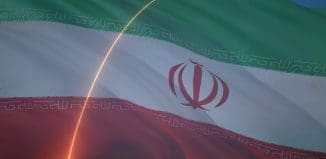The New Ideological Threat to the GCC: Implications for the Qatari-Saudi Rivalry
This post is also available in:  עברית (Hebrew)
עברית (Hebrew)

In his book Sectarian Politics in the Gulf, Frederic M. Wehrey argues that the Arab Gulf states are united by a shared threat perception and a shared discourse on security. Indeed, these states have much in common, including Sunni monarchial regimes, an abundance of oil and gas, similar socio- political conditions, and the US as a major ally. A constellation of these common characteristics makes the security challenges facing the Arab Gulf states almost identical. One major peculiarity of the security threats is that they have an ideological character more than a conventional military nature.
Throughout the modern history of the Gulf, these threats included Nasserism, Baathism, communism, and revolutionary Shiism from Iran. However, since the Arab uprising began in late 2010, a new ideological threat to many of the GCC states has formed. This threat, in the perception of Saudi Arabia, UAE, and Bahrain, appears in the guise of the Muslim Brotherhood. The Brotherhood not only poses an ideological challenge and threat to several Gulf Arab states; it also undermines the unity and functionality of the only cohesive Arab organization – the Gulf Cooperation Council (GCC). This challenge, which the Muslim Brotherhood poses to some of the Gulf states, draws a divide between two major rivals for the leadership in the region, Saudi Arabia and Qatar.
Saudi Arabia and Qatar, Persian Gulf petro-powers, are engaged in a struggle for ideological and geopolitical supremacy in the Sunni Islamic world. Both nations have been actively involved in the so-called Arab Spring revolutionary movements that erupted throughout the Middle East since late 2010, but they have different sociopolitical views about how to weather the inevitable transition that is taking place in the region while maintaining the status quo within their respective monarchies. Among the main areas where the two states have different perceptions, beyond the ideological dispute regarding the Muslim Brotherhood, are aggressive Qatari construction of narratives through the al-Jazeera satellite channel and support of different radical Islamist groups in the region, in particular Syria and Egypt. These two issues are tightly interconnected and affect the functionality of the GCC, and therefore, regional security.
The recent rift in relations between the Gulf states is believed to be the biggest challenge to the GCC since its creation in 1981. The core dispute between the members centers on the ideological perception of regional threats. In early March 2014, Saudi Arabia, Bahrain, and the UAE announced a withdrawal of their ambassadors from Qatar. The main reason for the disagreement was the financial and political support provided by Qatar’s leadership to the Muslim Brotherhood in Egypt and elsewhere, and sermons by Yusuf al-Qardawi, the ideological leader of the Muslim Brotherhood.
To Saudi Arabia, which blacklisted the Muslim Brotherhood as a terrorist organization in Saudi Arabia in early March 2014, Qatar has been interfering in Saudi Arabia and the internal affairs of other Arab countries with its support of the Muslim Brotherhood and al-Jazeera’s critical anti-government reports about the Gulf countries and the Middle East.
Qatar’s Approach to the Muslim Brotherhood
It is important to understand the roots of Qatar’s approach toward the Muslim Brotherhood, which began more than 50 years ago and has cemented into a specific type of relationship between the movement and the state. The underlying controversy here is in the relations between Qatar and other Gulf States, especially Saudi Arabia and the UAE, which are problematic and threaten Qatar and its commitment to the support of the Brotherhood.
Among the members of the Muslim Brotherhood who began to arrive in Qatar en masse in the 1960s were clerics and Islamic scholars who helped design the Qatari education system. The main goal of that strategy was to create an independent education system to fill the emerging Qatari bureaucracy with necessary cadres, which could be independent from Saudi Arabia. This approach allowed Qatar to avoid relying on Saudi clerics and scholars, which otherwise could lead to the creation of the similar system in Qatar, automatically making it oriented toward Saudi Arabia and putting it under the Saudi influence.
In 1961 Yusuf Qardawi arrived in Qatar from Egypt. He initially ran a newly formed institute of religions, and later founded the College of Sharia at Qatar University and became its dean. Now Qardawi is considered to be one of the most influential and well-known Brotherhood clerics. On the whole, the Brotherhood secured a niche for itself in Qatar through establishing its education system and educating its bureaucrats, with the result that there are many Brotherhood sympathizers in the Qatari establishment.
Register to iHLS Israel Homeland Security
Contrasting Saudi and Qatari Policies on the Syrian Crisis
The Syrian crisis has become a barometer of the relations among the regional actors, especially those who would be expected to be in one camp. Ideological rivalry between Qatar and Saudi Arabia can be easily tracked through the prism of the Syrian conflict.
Since the start of the turmoil in Syria in the spring of 2011, Saudi Arabia has used this opportunity to enhance its leadership within the GCC and, in particular, restrain the growing confidence of Qatari foreign policy in the region. Another underlying reason for Saudi involvement is a desire to establish a new regional order by winning the Levantine front of struggle between Sunnis and Shiites, i.e., Saudi Arabia and Iran.
This is especially important in light of the partial diminution of the US involvement in the region. Since the eruption of uprising in Syria, the Saudis were involved, eager to topple the Assad regime. They supported moderate groups as well as more radical groups such as Jabhat an-Nusra and Ahrar ash-Sham brigades that were the most successful, until March 2014, when Riyadh, perceiving a threat to the unity of the Kingdom, banned support of al-Qaeda, Jabhat an-Nusra, ISIS, Hizbollah of Saudi Arabia, Houthis, Ansar Allah, and the Muslim Brotherhood. Saudi Arabia grew increasingly fearful of the risk of returning jihadists, who pose a certain threat to the Saudi leadership and domestic stability.
Qatar’s interests in Syria involve a mix of strategic, economic, political, and ideological concerns. Interestingly, before the rebellion began in Syria, Doha had enjoyed relatively good relations with Syrian government, as Doha also tried to maintain correct relations with Iran, Syria’s closest ally. In fact Qatar shares with Iran its primary source of wealth – the South Pars gas field, which helps to understand the “special” rhetoric towards Tehran. When the conflict in Syria erupted, Qatar intervened, aiming to secure its influence in the region by backing the Muslim Brotherhood, a major instrument of its foreign policy. In the course of the Arab Spring, Qatar bet on the Muslim Brotherhood and its affiliates, which brought Doha some positive results. Being almost immune to the Islamist movements’ ideologies, Doha exercised its influence through the Brotherhood elsewhere in the region.
As for Syria, Qatar started to arm Syrian rebels almost from the first days of the uprising, hoping that Muslim Brotherhood would be able to topple the Assad regime and seize control of the country. This policy contributed to the transformation of the Syrian uprising into the full-scale civil war, with thousands of jihadists fighting there. However, while Qatar has secured itself from the ideological and religious challenges, Saudi Arabia has failed to do so and begun to experience hard times.
Conclusion
The Syrian civil war demonstrates how ideological differences between two major powers in the Gulf affect the conflict and the behavior of respective actors. It is evidence that the ideological challenge that the GCC countries face has already impacted heavily on current developments in the region.
The new ideological challenge to the GCC and the threat of political Islam to some of the GCC members represented by the Muslim Brotherhood and its affiliates in the region mark a watershed in regional dynamics. Following the weakening of traditional Middle East powers (Cairo, Damascus, and Baghdad) over the last decade, Saudi Arabia and Qatar are consistently pursuing their own road to regional leadership.
However, systemic changes in the Middle East produced a new ideological challenge that threatens the security and stability of the GCC and sharpens the contest between two major Council powers, Riyadh and Doha. The rise of political Islam in the MENA region and its growing appeal to the region’s population, especially during the last three years; the war in Syria; and Islamic State advances in Iraq – all of these contribute to the division within the GCC, which coincides with other regional dynamics (exacerbation of the Sunni-Shia confrontation and the changing US role in the region) that further deepen security and stability concerns. Therefore, the new ideological threat to the GCC posed by political Islam and radical Islamists is substantial, and affects not only the GCC but the broader region. Although the possibility of open military conflict in the GCC is close to naught, this new ideological threat might change this assessment in the mid to long terms.
Written by: Alexey khlebnikov




























